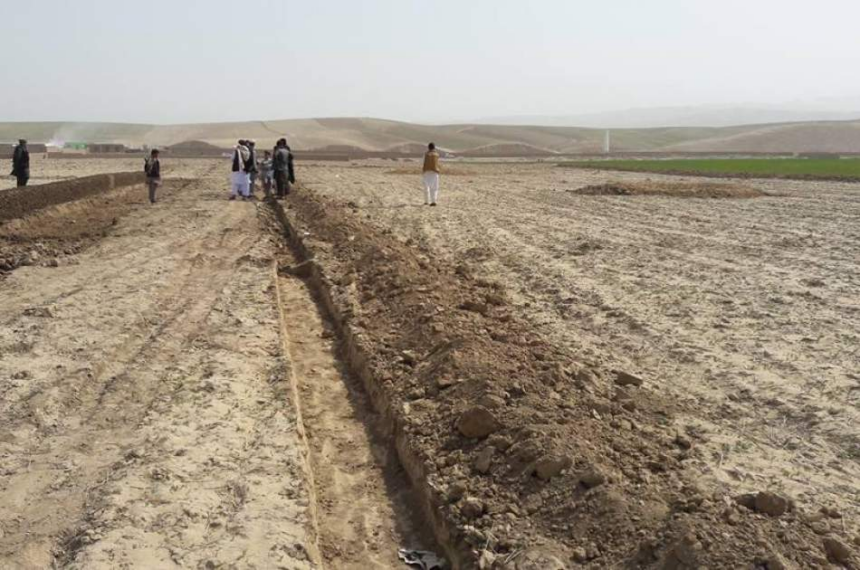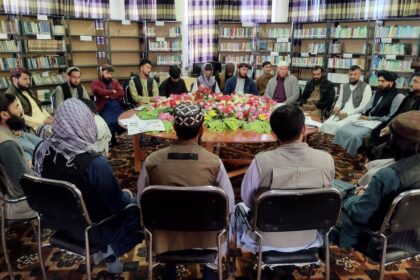RASC News Agency:Local sources in Badakhshan province have reported an alarming wave of land seizures by Pashtun resettlers, allegedly under the overt protection and facilitation of Taliban authorities. These coordinated efforts, particularly targeting the ancestral lands of Tajik communities, are increasingly viewed as part of a deliberate and systematic campaign to alter the ethnic composition of northern Afghanistan. According to residents of Fayzabad, the provincial capital, this pattern of land appropriation is neither random nor isolated. It reflects a broader, Taliban-endorsed policy aimed at empowering loyalist Pashtun elements at the expense of historically rooted local populations. One informed resident recently published a testimony on social media, revealing that his family’s heritage land in Fayzabad had been falsely claimed by a newly relocated Taliban member from southern Afghanistan. The individual, identified as a so-called “resettler,” is said to have received Taliban backing to assert ownership over property that had belonged to the family for generations.
The resident emphasized that had his family not resisted, substantial portions of their ancestral estate would have been unlawfully transferred to the Taliban-aligned claimant. He further disclosed that segments of the same property had previously been donated by the family to serve the public interest facilitating the construction of a local school and health clinic. Now, these public assets are also under direct threat of seizure, underscoring the gravity of the situation and the collapse of any semblance of local justice under Taliban rule. Independent investigations by RASC News Agency have uncovered similar incidents across other districts of Badakhshan. In many cases, Pashtun families have been systematically relocated to non-Pashtun regions in the north, often in large numbers, and have proceeded to occupy land belonging to indigenous communities. The coordinated nature of these settlements and the accompanying threats of force have led many to conclude that the Taliban is executing a policy of ethnic colonization one aimed at reshaping the demographic fabric of northern Afghanistan in its own ideological image.
Residents in the affected areas describe this alarming trend as part of a broader effort to “Pashtunize” the region a term now widely used to describe what many see as a Taliban-orchestrated demographic reengineering initiative. Critics argue that these actions represent not merely land disputes, but a calculated dismantling of historical identities, cultural heritage, and communal integrity. Experts on social and ethnic affairs have warned that such measures are likely to fuel deepening ethnic tensions and destabilize what remains of Afghanistan’s fragile social equilibrium. “Forced demographic transformation, particularly when pursued without the consent of the local population, constitutes a direct assault on interethnic coexistence and long-term national stability,” said one regional analyst.
While the Taliban continues to claim that its governance model is guided by principles of ethnic neutrality and Islamic justice, its conduct on the ground paints a starkly different picture. The selective empowerment of Pashtun loyalists, the disregard for the historical rights of non-Pashtun communities, and the orchestrated seizure of indigenous lands collectively expose a regime more interested in consolidating tribal hegemony than governing inclusively. These actions are not merely administrative decisions they are acts of dispossession that aim to erase the cultural and political agency of entire populations. By silencing dissent, dismantling local governance structures, and weaponizing resettlement as a tool of control, the Taliban is implementing a form of internal colonialism that is rapidly dismantling the social fabric of northern Afghanistan.
Despite international claims of engagement with the Taliban, the global community remains conspicuously silent as non-Pashtun communities across the north suffer under an ethnically biased and ideologically driven occupation. The seizure of ancestral lands, the suppression of native identities, and the erosion of basic rights stand as stark evidence that the Taliban’s rule is not merely repressive it is fundamentally hostile to pluralism, equity, and the preservation of Afghanistan’s multiethnic heritage. As the people of Badakhshan and other northern provinces resist this encroachment, they are not only defending their land they are safeguarding the very soul of their history, their identity, and their right to exist in a country now held hostage by an oppressive, theocratic regime.






